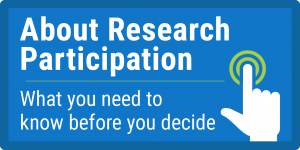You can also request more information by calling our Research Coordinator at (562) 430-7533, EXT 223 or by completing the Clinical Trials Inquiry Form.
A clinical trial (or clinical research project) is a research study used to test new medical treatments and therapies such as a drug or device. Clinical trials involve people, reflect the most promising laboratory research and are done in stages or phases. In Phase I through Phase III, clinical test volunteers are under the supervision of a physician and other research professionals. Some clinical research occurs after a drug or treatment is launched and has been on the market—that type of research falls under the scope of Phase IV studies. Generally speaking our primary focus has been Clinical Phases II, III and IV.
Most of our clinical research is developed by pharmaceutical and biotechnology companies (sponsors), who select qualified physicians (investigators) to help. Before being presented to Los Alamitos Cardiovascular, each proposed study has met FDA protocols, and has been approved and is under the supervision of an Institutional Review Board (IRB ). Because of the nature of our practice and its large patient base, our practice is frequently invited to participate in cardiovascular-related research.
A clinical trial is led by a principal investigator, who is often a doctor. In many cases, your Los Alamitos Cardiovascular physician will be one of the principal investigators. The principal investigator and members of the research team regularly monitor each volunteer’s health to determine the study’s safety and effectiveness. In a clinical trial, a volunteer is normally assigned to a specific study group. Typically, clinical trials compare a new product or therapy with another that already exists to determine if the new one is as successful as, or better than, the existing one. In some studies, participants may be assigned to receive a placebo (an inactive product that resembles the test product, but without its treatment value). Comparing a new product with a placebo can be the fastest and most reliable way to demonstrate the new product’s therapeutic effectiveness. Placebos are not used if a patient would be put at risk—particularly in the study of treatments for serious illnesses—by not having effective therapy. Potential participants are told if placebos will be used in the study before they enter a trial, but are not told if they are in the “placebo” group. Important details of each trial are reviewed with each volunteer during the Informed Consent process.
Informed Consent is the process of providing potential participants with the key facts about a clinical trial before they decide whether to participate. Informed Consent is an on-going process, and continues throughout the study. The Informed Consent document includes details about the study, such as its purpose, duration, required procedures, and who to contact for further information. The Informed Consent document also explains risks and potential benefits. A volunteer can then decides whether to sign the document. Please keep in mind that Informed Consent is not a contract. Volunteers are free to withdraw from the study completely, or to refuse particular treatments or tests at any time. Sometimes, however, this will make them ineligible to continue the study.
Controls are in place so that no volunteer’s personal information is ever released outside our system. Information linking your name to your medical information is replaced by other identifiers—like numbers. Your information remains completely confidential and private.
Clinical research is conducted according to a plan known as a protocol. The protocol is carefully designed to safeguard the volunteers’ health and answer specific research questions. A protocol describes the following:
- Who is eligible to participate in the trial which is also referred to as “inclusion and exclusion criteria.”
- Details about tests, procedures, medications, and dosages.
- The length of the study and what information will be gathered.
Patients who qualify for a clinical trial decide, with the advice of their physician, whether to participate in the study. How a treatment will work for a patient in a trial cannot be known ahead of time. Therefore, the patient should be aware of both the risks and benefits of clinical trials before making a decision. If you qualify, we encourage you to discuss participation not only with you physician, but your family as well.
After a clinical trial is completed, researchers carefully examine information collected during the study before making decisions about the meaning of the findings and about further testing. Study results can become important building blocks to new and better treatments, further research and other types of medical advances.
If you are interested in joining a clinical trial, then please contact your Los Alamitos Cardiovascular physician or call our general telephone number (562) 430-7533 and ask to speak with our Research Coordinator, or fill out our online form to contact our research coordinator.
Want to Know More?
These resources should help get you on your way to learning more about clinical trials and what it means to become a volunteer…
- National Institute of Health Website: NIH Clinical Trials and You-The Basics. This website is dedicated to answering your questions, framing expectations and offering a comprehensive review of the importance and benefits associated with clinical trial participation. Here you will also find sections covering researcher and volunteer stories, and a generous glossary of relevant terms.
- NIH Clinical Trials Data Base: ClinicalTrials.gov is a registry and results database of federally and privately supported clinical trials conducted in the United States and around the world. ClinicalTrials.gov gives you information about a trial’s purpose, who may participate, locations, and phone numbers for more details. This information should be used in conjunction with advice from health care professionals.



